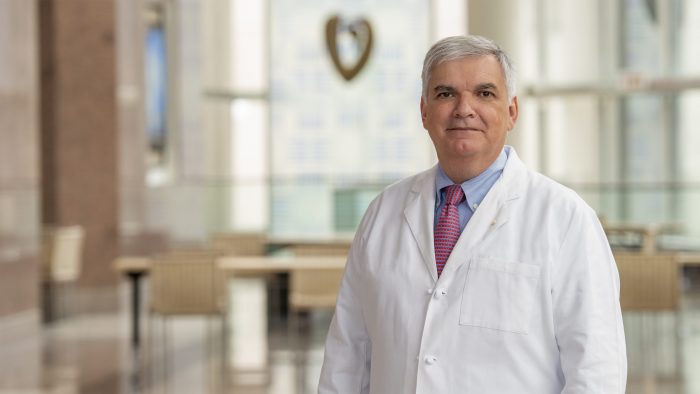Dr. Emerson Perin Participates in UofL Clinical Trial for New Investigational Therapy for Heart Failure

The Texas Heart Institute’s Emerson Perin, MD is collaborating with University of Louisville (UofL) on a new investigational stem cell therapy for heart failure that is currently enrolling and testing in patients as part of a clinical trial.
According to UofL News, “the trial is the first in the U.S. to test umbilical cord-derived stem cells in patients for heart failure and the first to use intravenous (IV) delivery of cell therapy for heart failure. It is the first trial in the world to test multiple doses of stem cell therapy for chronic heart failure.”
“As the field of cell therapy progresses, this trial represents an important step by introducing repeat dosing of stem cells,” stated Perin. “Additionally, there is an added convenience for enrolled patients, as the stem cells are administered through a quick IV infusion.”
Perin, alongside Roberto Bolli, UofL professor of medicine, director of the UofL Institute of Molecular Cardiology and a UofL Health cardiologist, who leads the study, is among a team that includes researchers from the University of Miami Miller School of Medicine, the Interdisciplinary Stem Cell Institute cell production laboratory at the University of Miami, and Johns Hopkins Hospital.
The CATO trial, a groundbreaking Phase II clinical study, focuses on patients with ischemic cardiomyopathy—those who have experienced heart attacks leading to scarring and heart failure. Funded by an $8 million grant from the Department of Defense to the University of Louisville, this four-year, multicenter trial seeks to evaluate the effectiveness of single versus multiple doses of stem cells in enhancing the health and quality of life for heart failure patients.
This innovative therapy utilizes mesenchymal stem cells (UC-MSCs) derived from donated umbilical cords. These adult stem cells are meticulously isolated and expanded at the Interdisciplinary Stem Cell Institute’s cell production laboratory at the University of Miami. The therapy incorporates several novel approaches designed to reduce costs and overcome barriers, potentially making stem cell treatment more accessible for heart failure patients.




